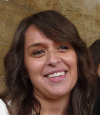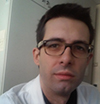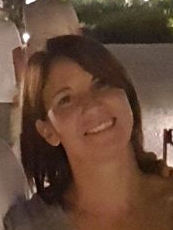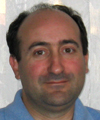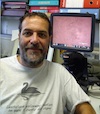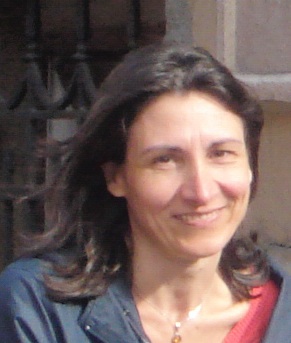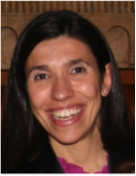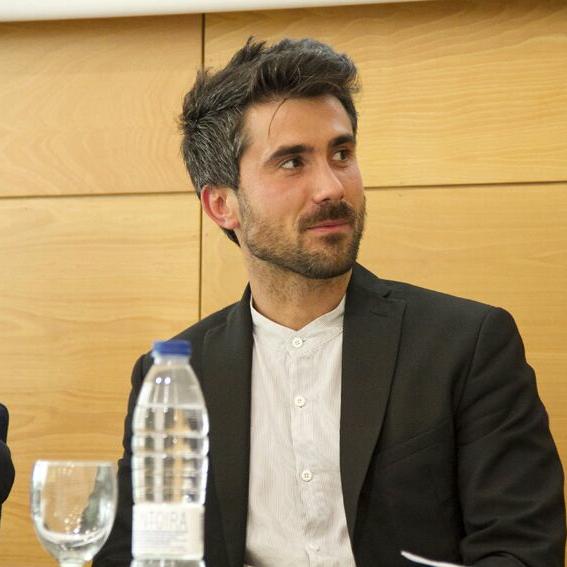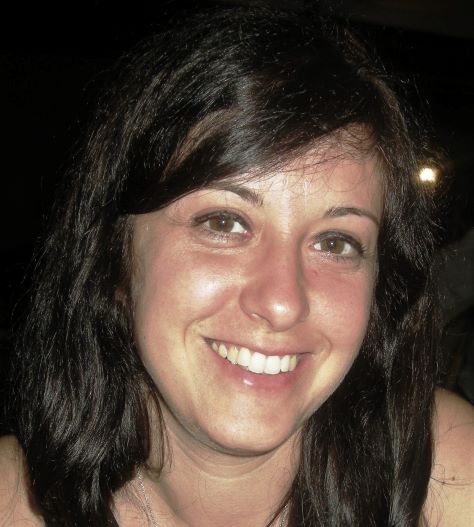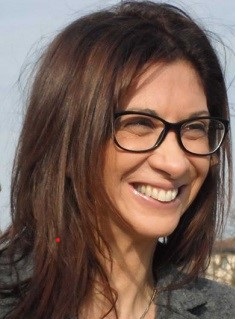Studying at the University of Verona
Here you can find information on the organisational aspects of the Programme, lecture timetables, learning activities and useful contact details for your time at the University, from enrolment to graduation.
Academic calendar
The academic calendar shows the deadlines and scheduled events that are relevant to students, teaching and technical-administrative staff of the University. Public holidays and University closures are also indicated. The academic year normally begins on 1 October each year and ends on 30 September of the following year.
Course calendar
The Academic Calendar sets out the degree programme lecture and exam timetables, as well as the relevant university closure dates..
| Period | From | To |
|---|---|---|
| I sem. | Oct 3, 2016 | Jan 31, 2017 |
| II sem. | Mar 1, 2017 | Jun 9, 2017 |
| Session | From | To |
|---|---|---|
| Sessione invernale Appelli d'esame | Feb 1, 2017 | Feb 28, 2017 |
| Sessione estiva Appelli d'esame | Jun 12, 2017 | Jul 31, 2017 |
| Sessione autunnale Appelli d'esame | Sep 1, 2017 | Sep 29, 2017 |
| Session | From | To |
|---|---|---|
| Sessione estiva Appelli di Laurea | Jul 12, 2017 | Jul 12, 2017 |
| Sessione autunnale Appelli di laurea | Nov 21, 2017 | Nov 21, 2017 |
| Sessione invernale Appelli di laurea | Mar 13, 2018 | Mar 13, 2018 |
| Period | From | To |
|---|---|---|
| Festa di Ognissanti | Nov 1, 2016 | Nov 1, 2016 |
| Festa dell'Immacolata Concezione | Dec 8, 2016 | Dec 8, 2016 |
| Vacanze di Natale | Dec 23, 2016 | Jan 8, 2017 |
| Vacanze di Pasqua | Apr 14, 2017 | Apr 18, 2017 |
| Anniversario della Liberazione | Apr 25, 2017 | Apr 25, 2017 |
| Festa del Lavoro | May 1, 2017 | May 1, 2017 |
| Festa della Repubblica | Jun 2, 2017 | Jun 2, 2017 |
| Vacanze estive | Aug 8, 2017 | Aug 20, 2017 |
Exam calendar
Exam dates and rounds are managed by the relevant Science and Engineering Teaching and Student Services Unit.
To view all the exam sessions available, please use the Exam dashboard on ESSE3.
If you forgot your login details or have problems logging in, please contact the relevant IT HelpDesk, or check the login details recovery web page.
Should you have any doubts or questions, please check the Enrollment FAQs
Academic staff
 maurizio.boscaini@univr.it
maurizio.boscaini@univr.it
Pintossi Chiara
 chiara.pintossi@univr.it
chiara.pintossi@univr.it
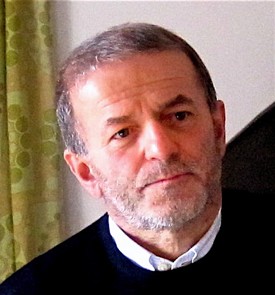
Vallini Giovanni
 giovanni.vallini@univr.it
giovanni.vallini@univr.it
 045 802 7098; studio dottorandi: 045 802 7095
045 802 7098; studio dottorandi: 045 802 7095
Study Plan
The Study Plan includes all modules, teaching and learning activities that each student will need to undertake during their time at the University.
Please select your Study Plan based on your enrollment year.
1° Year
| Modules | Credits | TAF | SSD |
|---|
2° Year activated in the A.Y. 2017/2018
| Modules | Credits | TAF | SSD |
|---|
3° Year activated in the A.Y. 2018/2019
| Modules | Credits | TAF | SSD |
|---|
One course to be chosen among the following:One course to be chosen among the following:| Modules | Credits | TAF | SSD |
|---|
| Modules | Credits | TAF | SSD |
|---|
| Modules | Credits | TAF | SSD |
|---|
One course to be chosen among the following:One course to be chosen among the following:Legend | Type of training activity (TTA)
TAF (Type of Educational Activity) All courses and activities are classified into different types of educational activities, indicated by a letter.
Bio-exploitation of solar energy (2018/2019)
Teaching code
4S003262
Credits
6
Language
Italian
Scientific Disciplinary Sector (SSD)
BIO/04 - PLANT PHYSIOLOGY
The teaching is organized as follows:
teoria
laboratorio
Learning outcomes
The main objective of the course is to provide students with adequate knowledge on the use of photosynthetic organisms and photosynthetic complexes for industrial application. In particular, the importance of plant organisms in the green economy will be described and how these organisms can be included in numerous production processes. In the first part of the course, in particular, the photosynthetic organisms will be described from an evolutionary point of view, from anoxigenic bacteria to higher plants. Subsequently, the physiological and metabolic characteristics of photosynthetic organisms will be described, focusing in particular on the unicellular ones, whose potentialities will be described as an alternative and complementary solution to traditional agricultural practices for the exploitation of solar energy. Therefore, the possible limitations related to the production of biomass and high value products will be identified and the main recent biotechnological solutions to overcome these limits will be mentioned. The last part of the course will then describe the methods of cultivation of single-celled photosynthetic organisms providing basic concepts on their possible use for specific applications in the agro-industrial, nutraceutical and renewable energy sectors. Finally, the recent potential applications of extra-cellular photosynthesis using nano-bio hybrid compounds will be mentioned. During the laboratory activities foreseen within the course, plant biochemistry experience will be proposed to students such as the preparation and cultivation of algae cultures in model photobioreactors and the extraction and analysis of metabolites and proteins from plant organisms.
KNOWLEDGE
1. knowledge of primary and secondary metabolism of plants and processes of bio-exploitation of solar energy
2. knowledge of laboratory equipment and understanding of the experimental protocols to be applied in the environmental and bioresources fields
3. theoretical knowledge useful for understanding scientific articles and advanced texts concerning the environment and the bioresources
SKILLS
1. Understanding of primary production processes in autotrophic organisms and management of cell cultures for the production of biomolecules and (photo)bioreactor implementation
2. ability to understand scientific articles and texts concerning biotechnological applications in the environmental-industrial field
Program
THEORY:
- Introduction to the course: maximum photosynthetic efficiency and potential of photosynthetic organisms for the production of compounds of interest
- Evolution of photosynthetic organisms from photosynthetic anoxygenic bacteria to cyanobacteria
- Evolution of photosynthetic organisms: primary and secondary endosymbiosis and appearance of photosynthetic eukaryotic cells. Description of the main types of microalgae and macroalgae
- Evolution of photosynthetic organisms: colonization of the emerged lands and development of lower and higher plants
- Physiological, biochemical and metabolic characteristics of cyanobacteria
- Physiological, biochemical and metabolic characteristics of eukaryotic microalgae
- Physiological, biochemical and metabolic characteristics of macroalgae
- Overview of secondary metabolism in photosynthetic organisms for the production of compounds with high added value
- Nutritional needs of unicellular photosynthetic organisms and strategies for obtaining nutrients from the external environment
- Perception of light, photoreceptors and signal transduction
- Current limitations in biomass production through the fixation of CO2 by microalgae and cyanobacteria and possible solutions
- Use of unicellular and multicellular photosynthetic organisms for the production of biomass for food, nutraceutical and cosmetic purposes
- Use of unicellular and multicellular photosynthetic organisms for the production of renewable energy
- Use of higher plants for phytoremediation
- Use of algae and higher plants for molecular farming
- Use of photosynthetic protein complexes in an extracellular environment for the exploitation of solar energy
LABORATORY:
- Preparation of microalgae cultures and characterization of biomass productivity of different algal species
- Extraction and characterization of metabolites produced by algal cultures
DIDACTIC METHODS lectures (with slides), group discussions and lab exercitations
Reference texts:
Teaching material provided by the teacher (available on e-learning platform)
Elements of plant physiology Taiz / Zieger / Moller / Murphy
Bibliography
| Activity | Author | Title | Publishing house | Year | ISBN | Notes |
|---|---|---|---|---|---|---|
| teoria | Taiz L. Zeiger E. | Elementi di Fisiologia Vegetale | Piccin | 2013 | ||
| teoria | Taiz L. e Zeiger E. | Fisiologia Vegetale | Piccin-Nuova Libraria | 9788829921577 | ||
| laboratorio | Taiz L. Zeiger E. | Elementi di Fisiologia Vegetale | Piccin | 2013 |
Examination Methods
The objective of the exam consists in verifying the level of achievement of the previously indicated objectives. The exam consists of a written test with some open questions and some closed questions taken from the teaching material provided. During the lessons, examples of written exams are presented. Immediately after the written test, it is possible to arrange an oral interview (optional) with the teacher.
Type D and Type F activities
Modules not yet included
Career prospects
Module/Programme news
News for students
There you will find information, resources and services useful during your time at the University (Student’s exam record, your study plan on ESSE3, Distance Learning courses, university email account, office forms, administrative procedures, etc.). You can log into MyUnivr with your GIA login details: only in this way will you be able to receive notification of all the notices from your teachers and your secretariat via email and soon also via the Univr app.
Graduation
List of theses and work experience proposals
| theses proposals | Research area |
|---|---|
| Studio delle proprietà di luminescenza di lantanidi in matrici proteiche | Synthetic Chemistry and Materials: Materials synthesis, structure-properties relations, functional and advanced materials, molecular architecture, organic chemistry - Colloid chemistry |
| Multifunctional organic-inorganic hybrid nanomaterials for applications in Biotechnology and Green Chemistry | Synthetic Chemistry and Materials: Materials synthesis, structure-properties relations, functional and advanced materials, molecular architecture, organic chemistry - New materials: oxides, alloys, composite, organic-inorganic hybrid, nanoparticles |
| Dinamiche della metilazione del DNA e loro contributo durante il processo di maturazione della bacca di vite. | Various topics |
| Risposte trascrittomiche a sollecitazioni ambientali in vite | Various topics |
| Studio delle basi genomico-funzionali del processo di embriogenesi somatica in vite | Various topics |
Attendance
As stated in the Teaching Regulations for the A.Y. 2022/2023, attendance is not mandatory. However, professors may require students to attend lectures for a minimum of hours in order to be able to take the module exam, in which case the methods that will be used to check attendance will be explained at the beginning of the module.

